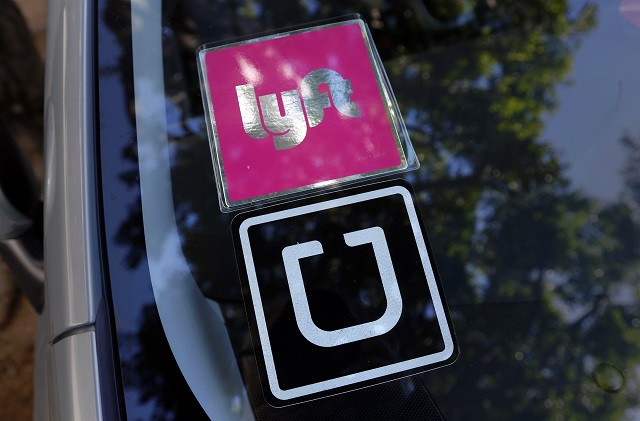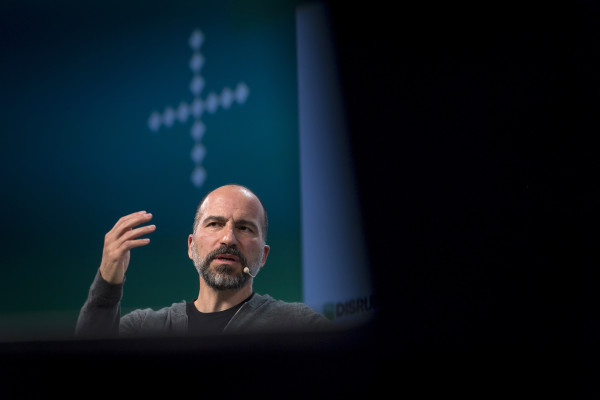California reshaped the future of the gig economy Wednesday as Gov. Newsom signed what he called a landmark bill for workers.
AB 5 will codify a state Supreme Court ruling last year that simplified the test for when a worker should be classified as an employee — and therefore be entitled to a minimum wage, health benefits and other protections. The contentious legislation is expected to affect ride-hailing giants Uber and Lyft, plus a host of other companies that use independent contractors.
“The hollowing out of our middle class has been 40 years in the making, and the need to create lasting economic security for our workforce demands action,” said Newsom, who had previously voiced support for the bill, in his signing letter. “Assembly Bill 5 is an important step.”
A defiant Uber said last week that it is “no stranger to legal battles” and believes it can pass the test imposed by the courts and AB 5: that a worker is an independent contractor when he or she is free from control by a company; when the worker’s duties are outside the usual course of the company’s business; and when the worker is “customarily engaged in an independently established trade, occupation, or business of the same nature as the work performed.”
Uber said it does not plan to classify its drivers as employees when the bill becomes law in January. The San Francisco ride hailing company, which has offered concessions short of classifying drivers as employees and has been negotiating with labor leaders and the governor, said through a spokesman Wednesday that “California is missing a real opportunity to lead the nation by improving the quality, security and dignity of independent work.”
But the bill’s author, Assemblywoman Lorena Gonzalez, D-San Diego, said in an interview Wednesday, “If Uber thinks they’re so strong and powerful that they’re just going to ignore the law, that’s the reason we put the local enforcement clause in the bill.” AB 5 includes a provision empowering cities with populations over 750,000 to prosecute companies that continue to misclassify their workers.
Ride-hailing drivers have protested and held rallies up and down the state for months in support of AB 5.
Edan Alva, an Alameda resident who drives for Lyft, cheered the signing of the bill.
“By standing up to Uber and Lyft we have started a movement that will lift up millions of workers,” Alva said in a statement Wednesday. “AB5 must be enforced and we will keep fighting for a path to a real union so drivers like me can ensure we have things like health insurance for ourselves and our family.”
Uber, Lyft and food delivery startup DoorDash have put $90 million into a fund for a campaign that would bring the issue to voters.
Representatives for Lyft and DoorDash said Wednesday that they were encouraged Newsom indicated he would keep talking with business and labor in an effort to “preserve flexibility and innovation.”
But both companies also mentioned the possibility of putting the issue on the ballot. In addition, Lyft has warned that it wouldn’t need as many drivers and pointed to a recent study that says hundreds of thousands of drivers in the state could lose their ability to drive for the company if it is forced to classify them as employees.
One professor thinks ride-hailing drivers might see a smaller paycheck.
“This is yet to be seen but it is a possible argument because the incentives and reward system will be restructured to account for employee status,” said Orly Lobel, director of the Program on Employment and Labor Law at the University of San Diego.
Shares of Uber and Lyft fell amid a broader market sell-off Wednesday. This week, Moody’s released a report to investors warning of “heightened litigation risks and business uncertainty” for Uber and other companies because of AB 5.
Other workers, such as doctors, hairdressers and real estate agents, have secured exemptions from the bill. Newspaper publishers who use contract delivery workers got a one-year delay for compliance. But those in the trucking and music industries, among others, have also complained about the bill.
Eduardo Rangel, a truck driver from Hayward, has joined protests in Sacramento against the legislation. He’s worried about losing the flexibility his independent contractor status has given him for the past 15 years. He said he works seven to eight months a year, and during the slow season sometimes spends up to a month in Mexico, where he’s from, or traveling elsewhere.
He said that as an employee he expects to earn just a third of what he’s making now, which after expenses such as paying for his own health insurance amounts to about $70 an hour.
“But more than the money, my freedom would be taken away,” Rangel said Wednesday. “There’s been a benefit to being my own boss. I’ve been able to spend a lot of time with my kids.”










